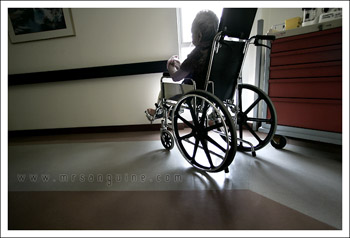Anabaptist Conscientious Objection in Toronto.
From CNW Group, an update on the Canadian case about conscientious objection:
Mennonite Central Committee Canada (MCCC) and Canadian Friends Service Committee (CFSC) (Quakers) express disappointment that the Federal Court of Appeal (FCA) has rejected a request to intervene in an appeal by US war resister Jeremy Hinzman.Hinzman and family applied for permanent resident status in Canada on humanitarian and compassionate grounds, but their application was rejected. An upcoming appeal to the FCA will focus on whether punishment for desertion from the military - if it was motivated by a "deeply held" objection to war - could amount to "undue hardship" for the purpose of a humanitarian and compassionate application.The FCA refused CFSC-MCCC's intervention stating that they weren't directly affected by the issue, wouldn't provide a "fresh perspective", and that the Hinzmans' legal counsel could raise relevant concerns.Jane Orion Smith, General Secretary of CFSC, said, "The Court's decision is profoundly disappointing. Quakers and Mennonites, the core base of historic peace churches, have a unique and influential role in establishing rights for conscientious objectors over several centuries in Canada and internationally. During conscription, most of our members sought exemption as conscientious objectors. Conscientious objection is an issue of the present, not just history. Jeremy Hinzman and his family are an active part of the Toronto Quaker Meeting. Despite this setback, we will continue to educate and advocate for the realization of this much misunderstood right which is protected in domestic and international law."CFSC and MCCC argued that because Jeremy Hinzman's conscientious objection is rooted in his freedom of religion (and conscience), there should be a different test for assessing his punishment for holding those beliefs. It should not have to amount to "undue or disproportionate" hardship. Any hardship for his beliefs could potentially breach his religious rights, and the immigration officer deciding his case had to consider his case in light of these rights.Tim Wichert of Jackman & Associates, counsel for CFSC and MCCC, says: "The Federal Court has specifically said that the issue of conscientious objection still raises a host of outstanding questions, begging for resolution. Because of their extensive experience with this issue, we argued that Quakers and Mennonites had a unique perspective to offer."For further information: Tim Wichert (counsel), (905) 932-8914 or (416) 653-9900 ext 228; Jane Orion Smith (CFSC), (416) 920-5213 or (416) 356-5213
Labels: amish, anabaptists, Canada, memmonites, religious tolerance



